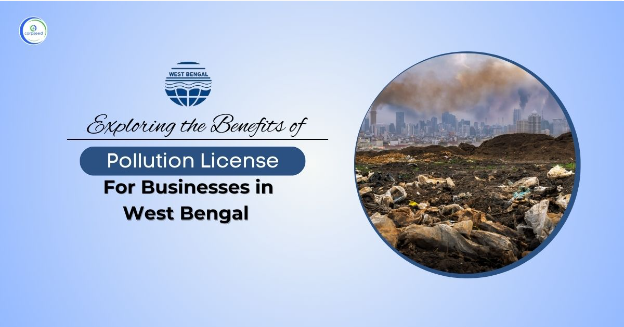Introduction
In recent years, the global focus on environmental conservation and sustainability has prompted governments to implement stringent measures to regulate industrial activities. One such measure is the requirement for businesses to obtain pollution licenses. In the context of West Bengal, businesses are subject to environmental compliance regulations, acquiring a pollution license a crucial aspect of their operations. This article aims to delve into the significance of pollution licenses for businesses in West Bengal, the different types available, and the process involved in obtaining them.
Pollution Licenses in West Bengal
West Bengal Pollution Control Board (WBPCB) is the regulatory authority responsible for issuing pollution licenses in the state. Businesses are typically required to obtain licenses for different types of pollution, including air pollution, water pollution, and hazardous waste management. These licenses serve as a legal affirmation that the company complies with the prescribed environmental standards.
Importance of Environmental Compliance
- Environmental compliance is a key factor in sustaining the delicate balance between industrial growth and ecological preservation.
- Businesses that obtain pollution licenses showcase their commitment to responsible and sustainable practices, enhancing their corporate image and reputation.
- Compliance with environmental regulations is not only a legal obligation but also a means of fostering a healthier and more sustainable future for the region.
Different Types of Pollution Licenses
- Consent to Establish (CTE): This license is mandatory for new businesses before they commence operations. It ensures that the proposed industrial unit adheres to the stipulated environmental norms.
- Consent to Operate (CTO): Existing businesses must obtain this license to continue their operations. It is a periodic renewal that validates the ongoing compliance of the industrial unit.
- Hazardous Waste Authorization: Industries generating hazardous waste must obtain this license to manage and dispose of such waste safely.
Process of Obtaining a Pollution License
- Preliminary Application: Businesses initiate the process by submitting a preliminary application to the WBPCB, providing details about the proposed project or existing operations.
- Site Inspection: The WBPCB conducts a site inspection to assess the environmental impact and the measures taken by the business to mitigate pollution.
- Document Submission: Businesses are required to submit relevant documents, including environmental impact assessments, water and air quality reports, and waste management plans.
- Compliance Verification: The WBPCB verifies whether the business complies with environmental norms and standards.
- Issuance of License: Upon successful compliance verification, the pollution license is issued, allowing the business to operate within the specified environmental parameters.
Conclusion
In conclusion, pollution licenses in West Bengal are not just regulatory requirements but integral tools for promoting sustainable industrial practices. Businesses that prioritize environmental compliance contribute to the overall well-being of the community and create a positive image for themselves. By obtaining and adhering to pollution licenses, companies not only fulfill legal obligations but also foster a culture of responsibility that benefits both the environment and their long-term success in the dynamic business landscape of West Bengal.


